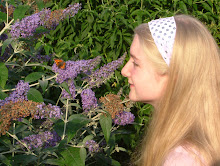(I'll try and keep reviews non-spoilery, but I can't promise. There may be mild spoilerage, i.e. the spoiler that there is a twist but not what it is, and info that can be got from most film sites or magazines, or that I consider not particularly important.)
Summary: 'Daybreakers' is about a world where conventional vampirism is a disease that has spread through the human race, leaving only a small percentage of humans uninfected. Vampires rule the world and farm people, consuming blood as we consume wine and coffee. It's a brilliant concept in a culture where Twilight has neutered vampires to the point of blandness. If, like me, you're a fan of vampire texts of every kind, this is a welcome diversion from the standard form. And, for all its pretensions to schlocky horror (red text on black for the end credits...classy) it has some startlingly gorgeous moments, with subtle, minimalist filming intelligently accompanied by a nuanced orchestral score, suddenly interrupted by shocking and choppily filmed action scenes. That said, 'Daybreakers' for me feels like a missed opportunity. Large parts of it feel underdone, and there seems to be a dichotomy between the film it could have been and the film it has ended up: half exploration of an interesting idea, by turns delicate and intense, half Hollywood silliness and lazy tropes.
'Daybreakers' is eerily beautiful at the beginning. The credits sequence is a daylit city empty of people turning into a thriving metropolis by night. It provides slightly hamfisted exposition, but also sly humour (see the ad for vampire toothpaste). In places, the filming is arty and lingering, setting up beautiful shots that interact wonderfully with the orchestral soundtrack. Let's just say it doesn't live up to its promise.
I've heard 'Daybreakers' described as the 'anti-Twilight'. Quite honestly, the only thing they have in common is vampires, so comparing anything else about them is pointless. Let's deal with the 'our vampires are different' school of thought. Fangs/drink blood? Check. Infect via bite? Check. Burn up in sunlight? Double check. Turn into bats? Not exactly. These are actually some of the least 'different' vampires I've seen, and yet they manage to be far more interesting. They even incorporate the whole Nosferatu look as vampires go mad from drinking non-human blood, allowing the in-your-face horror element. In fact, there were some decent chills and even outright scares in the devolution of the vampires: the use of sound and visuals was wonderful, too much CGI was avoided, and it showed that even the civilised, intelligent heroes have the potential to become truly monstrous.
Essentially, these are vampires in the White Wolf sense: creatures of the folklorish night who've come into the new century. They are corporate, stylish and value human life less than we value cows and chickens. We follow vampire hematologist Edward Dalton (a dead-eyed Ethan Hawke) as he desperately tries to synthesise a blood substitute that doesn't explode vampires (which is hilarious) or turn them into mutated monsters. The blood supply is dwindling as the human population has been battery-farmed to the point of extinction, and things are starting to turn nasty. Edward has a generically heroic soft-spot for humans whereas his brother hunts down rogue humans to be put in the farms. Then there is an idyllic community of escaped humans, a possible cure for vampirism, and hunting parties trying to track down the rogue vampire and his human friends. The film is brilliant at the beginning, grows baggy once the humans enter, and then lurches along at an uneven pace, doling out awesome, dull and unpleasantly visceral in almost equal measures. The ending shares this awkwardness, with a nonsensical big reveal and bizarrely shifting tone, from replusion to ironic hilarity and back. It felt cut short, as though they had no idea how to end it, but knew they didn't want everything to work out fine.
As has been pointed out on TV Tropes, there are massive logical inconsistencies the viewers have to accept for the plot to work, such as the excessive infection spread and the complete lack of forsight in controlling blood production. The script rather lacks in places, and the time frame is really confused, with some sections that make no sense, possibly because of last-minute changes or edits. The actors are fine, though not sparkling: Ethan Hawke is passable, but a bit boring as Edward Dalton, which is also true of Claudia Karvan playing a human with seemingly no personality, and Willem Defoe is possibly one of the better actors but his role gives him a limited amount to play with. The strongest presences are Sam Neill as uber-corporate vamp Charles Bromley and Isabel Lucas as his renegade daughter Alison, whose stories are given a decent amount of screentime, and for me were far more interesting.
Thursday, 21 January 2010
Subscribe to:
Post Comments (Atom)

No comments:
Post a Comment